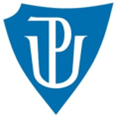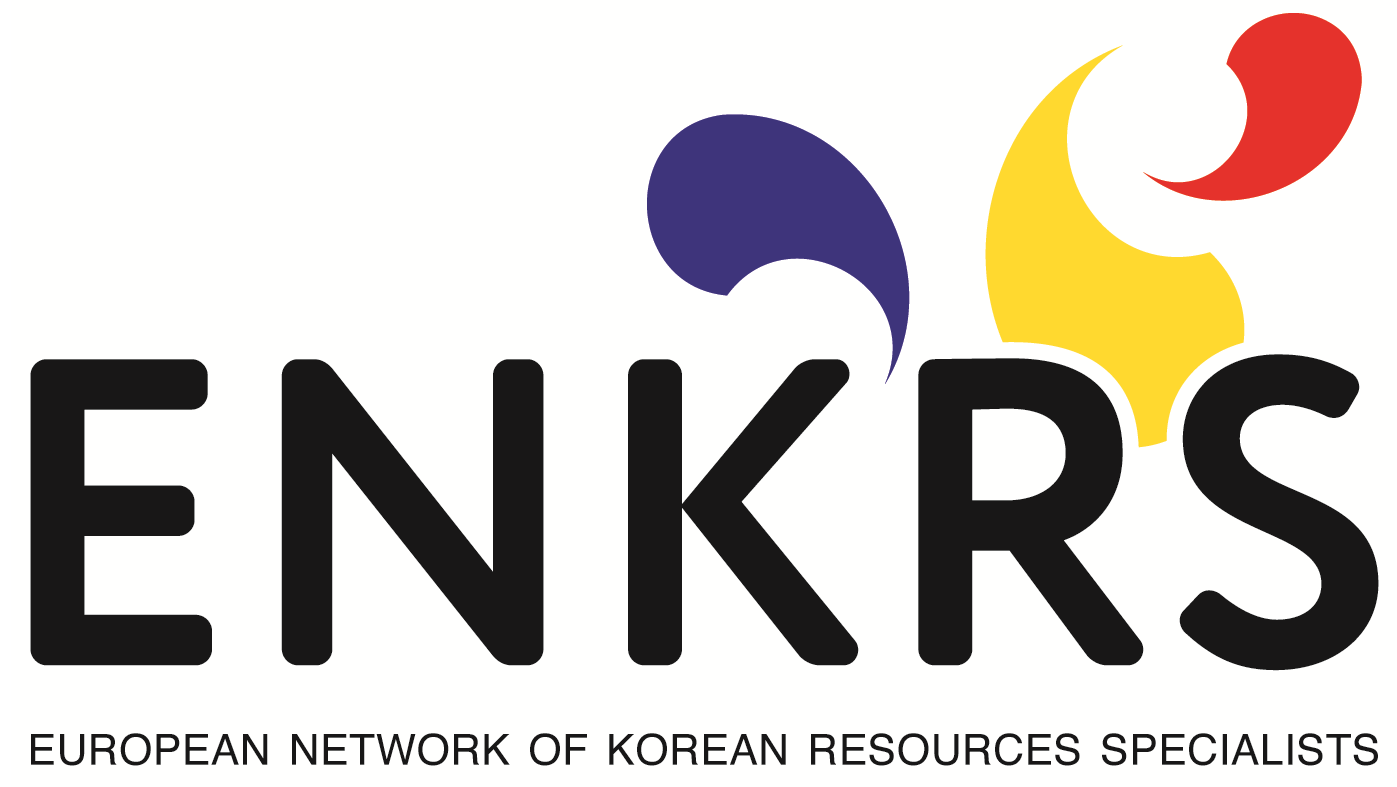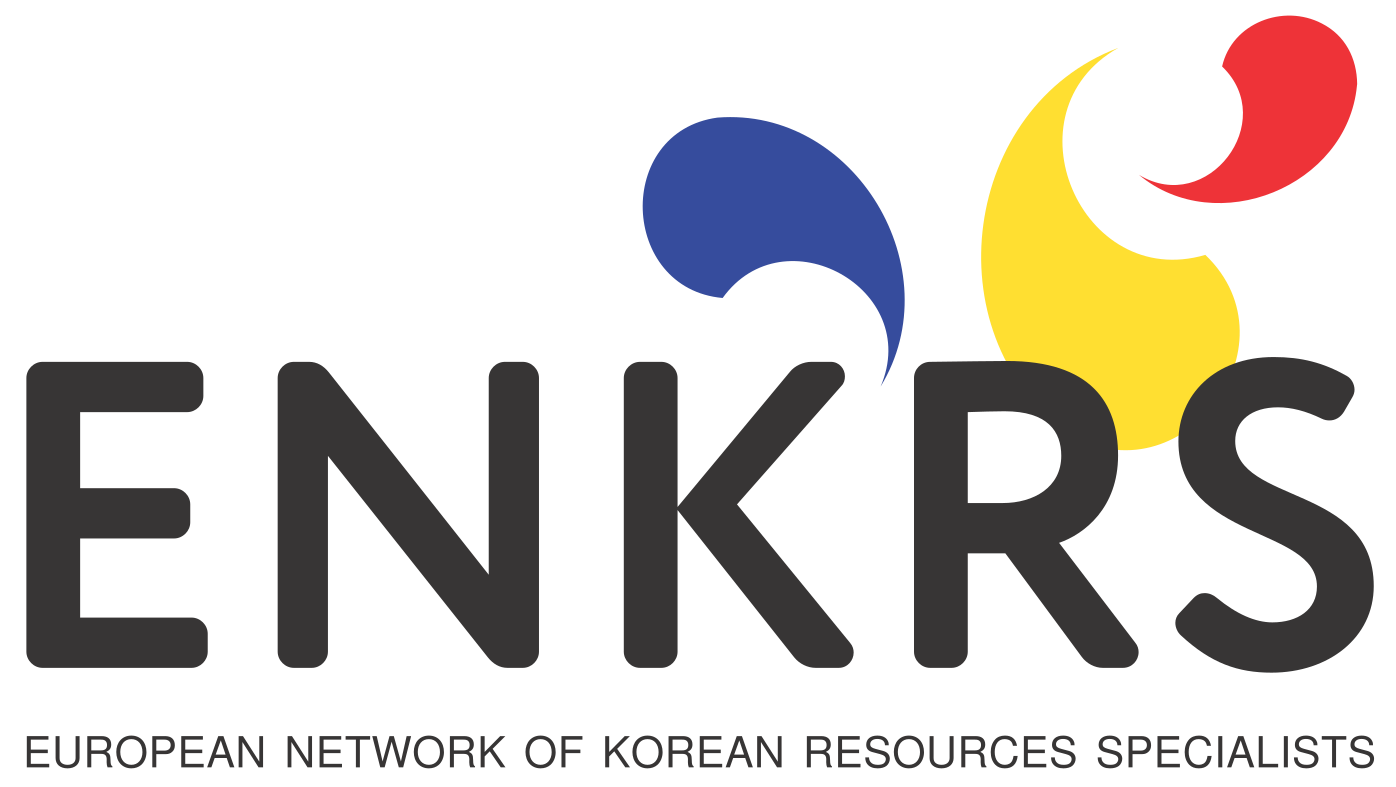The 2025 KF - ENKRS Network Workshop
21–24 May, 2025
Korean Studies Librarianship and Digital Humanities:
Opportunities and Challenges for Librarians in Supporting the Next Generation of Korean Studies Scholars.
Department of Asian Studies, Palacký University
tř. Svobody 26
779 00 Olomouc, Czech Republic
Conference Schedule
(you can download the schedule here)
(practical information)
Session Details May 21st |
|
Pre-conference Network meeting for Korean Studies Cataloguers |
|
| 14:30-17:00 |
Part 1
Break Part 2 |
| 18:00 | Joint dinner at Viet Village (8.května 464/21)(at own expense!) |
Session Details May 22nd |
|
Session 1 |
|
| 10:15-10:45 |
Open Science and digital humanities at BULAC Library (Paris, France): Achievements and prospects
QUESEFIT, Laurent.
|
| 10:45-11:05 |
Developing various competence while learning about Korea at „Octavian Goga” Cluj County Library
Hallyu has also reached Romania and more and more teenagers strive to learn about the rich Korean culture. In this context the „Traian Brad” branch of „Octavian Goga” Cluj County Library has develop a small Korean shelf through the generous help of Korean Foundation and also offers a couple of workshops for children and teenager that want an introduction into the history, art and games of the Korean peninsula. During these workshops we do not teach them only about Korea, but we help them develop their creativity, STE[A]M competence, and become more skillful in manual work. During these workshops we recreated a janggu from various materials, we printed key-chains with their Korean names with the 3D printer, we painted fans and the Korean flag, we learn Korean language through computer games and so on. |
| 11:05-11:15 | Q&A |
| Coffee / Tea Break | |
Session 2 |
|
| 11:30-1200 |
Bridging Korean Studies Librarianship and Digital Humanities: Challenges and Solutions from the University of Hawaii Library–National Institute of Korean History Collaborative Digitization Project.
Despite the project’s significance, several challenges emerged, including technical barriers in metadata standardization, differences in archival practices between institutions, collaboration between two institutions in different countries, and logistical difficulties in digitizing fragile materials. Additionally, navigating copyright issues and ensuring sustainable access to digital resources posed significant concerns. To address these challenges, UHM Library and NIKH implemented a series of solutions, such as establishing standardized metadata protocols, developing a cross-institutional workflow for digital preservation, and fostering open communication between librarians and scholars to ensure accessibility meets the needs of Korean Studies researchers. This session will introduce the details of the project, outline the key challenges encountered, and share the solutions that facilitated its success. By discussing these experiences, I aim to highlight best practices for international collaborations in Korean Studies librarianship, explore how digital humanities can enhance research accessibility, and offer practical insights for librarians supporting the next generation of Korean Studies scholars in the digital age. |
| 12:00-12:20 |
One Stop Korean Digital Humanities (KDH)
As the field of Digital Humanities (DH) continues to expand, there is an increasing need for a robust and comprehensive library research guide. This presentation explores existing research guides in both Korean and English and proposes a new guide that integrates resources from Korea and the United States. Currently being developed by the University of Michigan Library, this guide is intended to be a dynamic and collaborative resource. It is designed to allow engagement with DH scholars for further refinement and enhancement. The aim of this initiative is to offer a valuable resource for users interested in Korean DH tools and projects, thereby promoting a more interconnected and well-informed research community among Korean studies researchers and librarians. |
| 12:20-12:30 | Q&A |
| Lunch Break | |
Session 3 Keynote session |
|
| 14:00-15:00 |
From Concept to Completion: Realizing the Bibliography of Modern Korean Periodicals through Digital Humanities
This presentation explores the development and realization of the Bibliography of Modern Korean Periodicals as a digital humanities project. It discusses the process from initial concept to completion, highlighting the methodologies employed, challenges encountered, and key outcomes. The project involved extensive data management, digital curation, and the application of digital humanities tools to enhance accessibility and usability. By reflecting on both the difficulties and achievements, this talk aims to provide insights into the implementation of digital humanities in bibliographic scholarship and its implications for future research. |
| 15:00-15:30 | Q&A and Discussion: Digital Humanities and Korean Studies Librarianship |
| Coffee / Tea Break | |
Session 4 |
|
| 16:00-16:30 |
Survey: cataloging practices for Korean language materials (in Europe) + Results pre-conference Cataloguer’s meeting
VAN DER WERF, Arjan We will present and discuss the results of the Survey "Cataloging practices for Korean language materials (in Europe)", and what has been discussed at the pre-conference session. |
| 16:30-17:00 |
디지털 인문학과 도서관의 연결: 베를린 국립도서관의 디지털 인문학 이니셔티브
Since the National Endowment for the Humanities (NEH) formally introduced the concept of Digital Humanities (DH) in 2008, it has evolved into a dynamic research paradigm across disciplines. The integration of digital methodologies—offering both distant and close reading approaches—has transformed academic research while presenting new challenges for libraries. Beyond providing access to physical materials, libraries must now support digital data acquisition, infrastructure, and research services. In Korean Studies, DH has been significantly shaped by large-scale database projects led by Korean institutions. While the availability of open data has expanded research possibilities, the field still lacks widespread adoption of DH methodologies in individual projects. Additionally, limited training opportunities and insufficient collaboration have deterred many humanities scholars from fully engaging with DH approaches. This presentation will highlight key digital initiatives at the East Asia Department of the Berlin State Library, including strategies for acquiring and managing digital resources, infrastructure development, research talks, and academic conferences. I will also examine the strengths and challenges of DH in Korean Studies and explore how libraries can better support the evolving needs of scholars in this digital age. |
| 19:00- | Conference dinner (Univerzitní 3, 779 00 Olomouc) |
Session Details May 23rd |
|
Session 5 |
|
| 09:30-09:50 |
DS Support for Dummies? Tips from an inexperienced Subject Librarian on supporting Digital Scholarship
KREEFT-MISHKOVSKYI, Nadia Digital Scholarship (DS) is transforming research as we speak, yet many librarians feel unprepared to support scholars and students exploring this field. This presentation is by an inexperienced librarian and for inexperienced librarians, and is set to offer practical, beginner-friendly advice on assisting students and researchers with DS. A number of examples are offered of Leiden's particular situation in dealing with the rising demand in support for DS. |
| 09:50-10:05 |
Collections & Preparation for Digital Humanities of the Library of Korean Studies at the Collège de France
NO, Mi-sug The Library of Korean Studies at the Collège de France is a research library specializing in Korean Studies, which welcomes researchers from Masters students upwards. It currently holds more than 30,000 books on ancient and modern Korea, including books by and about North Korea, in fields as varied as the Humanities and Social Sciences, Philosophical and Religious Studies and the Fine Arts. The collection of Charles Haguenauer (1896-1976), who directly contributed to the creation of the Library establishing the Centre in 1959, and the invaluable collection of Maurice Courant (1865-1935) are the highlights of our collections. Library will always welcome users on site from all countries, but to be together with Digital Humanities, to where we took our first steps in 2010 thanks to a grant from the National Library of Korea, we will resume the digitization of Korean Collections to make them accessible to the world. |
| 10:05-10:20 |
Metadata Matters in Digital Bodleian and Oxford College Libraries
RILEY, Hannie This presentation explores the vital role of Korean subject librarians in creating accurate metadata to support the discovery and accessibility of Korean materials within Oxford’s library collections. Drawing from a recent case involving a Korean book mistakenly catalogued and presented as Chinese in the Digital Bodleian, I will reflect on the process of identifying, reporting, and correcting the metadata — highlighting the implications for digital scholarship and cross-cultural understanding. The incident underscores the broader challenges librarians face when working with non-Latin scripts and less widely taught languages, especially within historical collections where cultural and linguistic awareness may have been overlooked or misinterpreted. In addition to this case study, I will present findings from a survey of Korean materials held in Oxford’s college libraries. These resources, often uncatalogued or poorly described, remain largely unknown to scholars. By uncovering and documenting these items, we begin to build a more accurate picture of the Korean studies resources available within the wider Oxford system and raise awareness of opportunities for further research in the field. The presentation aims to stimulate discussion around the importance of culturally competent cataloguing and the subject specialist librarian’s role in supporting the next generation of Korean studies scholarship through improved metadata practices. |
| 10:20-10:30 | Q&A |
| Coffee / Tea Break | |
Session 6 |
|
| 11:00-11:20 |
기억의 지도: 3·1운동과 재미 한인 디아스포라의 여정
HONG, Jungeun The USC Korean Heritage Library collaborated with the USC Korean Studies Institute to sponsor the March 1st symposium, marking the 80th anniversary of Korea’s liberation. As part of this event, the library curated an exhibition showcasing key historical materials from its collection, highlighting the role of Korean Americans in the independence movement. To extend the reach of this history beyond the physical exhibition, the library is developing a digital project based on the USC Korean Heritage Library’s Korean American Digital Archives (KADA). This initiative will integrate three digital humanities tools to enhance engagement and accessibility. First, an interactive ArcGIS StoryMap will allow visitors to explore significant historical sites tied to Korean independence, enriched with oral histories. Omeka will serve as the digital exhibition platform, providing structured access to archival materials, photographs, and narratives. Lastly, a timeline visualization will offer historical context, tracing key moments in Korean American activism and its role in the broader independence movement. By combining historical records with digital storytelling, this project seeks to make these narratives more accessible and engaging for a wider audience, preserving an essential chapter of Korean and Korean American history for future generations. |
| 11:20-11:40 |
Korean studies and the Korean collection at Eötvös Loránd University (ELTE)
Korean Studies in Hungary began in the 1950s, and its beginning was closely linked to the revival of Hungarian-Korean diplomatic relations during the Korean War. A Hungarian-Korean dictionary was produced, the translation of Korean literature into Hungarian was launched, and cultural relations began to develop. However, the intensity of relations was strongly influenced by the changing political climate, which is why the teaching of Korean language and culture only started at ELTE in the 1970s, and the first donations of books from the DPRK to the university, which form the basis of the Korean Collection, arrived in the 1970s. In 1989, the People's Republic of Hungary was the first country in the Eastern Bloc to establish diplomatic relations with South Korea, which gave a new impetus to cultural and scientific relations. In 1997, a 4-semester Korean programme was launched at ELTE, and the Korea Foundation supported the programme with book donations, and the Korean collection began to grow. In 2008, the Korean Studies Department (the first one in Hungary) was established at the university, a BA programme was launched, followed by a Master's programme in 2013 and the launch of a PhD programme in Korean Studies in 2018. The number of students increased steadily until the mid-2010s, when it started to grow by leaps and bounds. As the demand for literature and teaching material increased, the Department applied for the National Library of Korea's Window on Korea project. The awarded project ran from 2020 to 2024 during which the Korean collection tripled in size, and library use by students and faculty also increased significantly. In this presentation I will give a detailed description of this process, covering the current situation and possibilities for future development. |
| 11:40-11:50 |
Korean Studies and Korean Studies Materials in the Czech Republic in
SCHIRMER, Andreas. This talk offers a light-hearted tour d’horizon, drawing on the spirit of place — the genius loci, as celebrated in the motto of Palacký University Olomouc — and reflecting on how this genius may harmonize with the spirit and agenda of ENKRS. As a former librarian and, these days, the PI of a project titled Digital Humanities for Korean Studies, and in light of several presentations at this meeting that engage with the challenges and promises of Digital Humanities for librarians, I will also reflect on how our digital humanities initiative may align with the aspirations of librarians working to support Korean Studies, particularly in Central and Eastern Europe. |
| 11:55-12:05 | Q&A |
| Lunch Break | |
Session 7 |
|
| 14:00-15:30 | Vendor presentations + booth visit |
| Coffee / Tea Break | |
Session 8 |
|
| 16:00-16:30 |
Digital Strategies for Enhancing Access to Korean Knowledge and Cultural Heritage at the National Library of Korea
The National Library of Korea(NLK) presented its digital initiatives, including extensive digitization efforts and the Korean Memory Project. The NLK's mission is to facilitate knowledge discovery and research through digital curation, ultimately aiming to revive and recreate cultural knowledge. Since 2016, over 20 million digital resources have been collected, with a focus on enhancing accessibility through OCR and AI-OCR platforms. The Korean Memory Project aims to curate and provide access to cultural heritage from various institutions. Two digital collections will be highlighted, showcasing Korea's cinematic history and translated literature. |
| 16:30-16:45 | Q&A |
Session Details May 24th |
|
Session 9 |
|
| 09:30-10:00 | Library Tour (Biskupské nám. 842, 779 00 Olomouc 9, Czechia) |
| 10:15-10:45 | Wrap-up: Korean Studies Librarianship and Digital Humanities. Opportunities and Challenges for Librarians in Supporting the Next Generation of Korean Studies Scholars |
| Coffee / Tea Break | |
| 11:00-12:00 | General Assembly (ENKRS members only) |
| 12:00-12:30 | Closing statements |
 |
 |
 |

